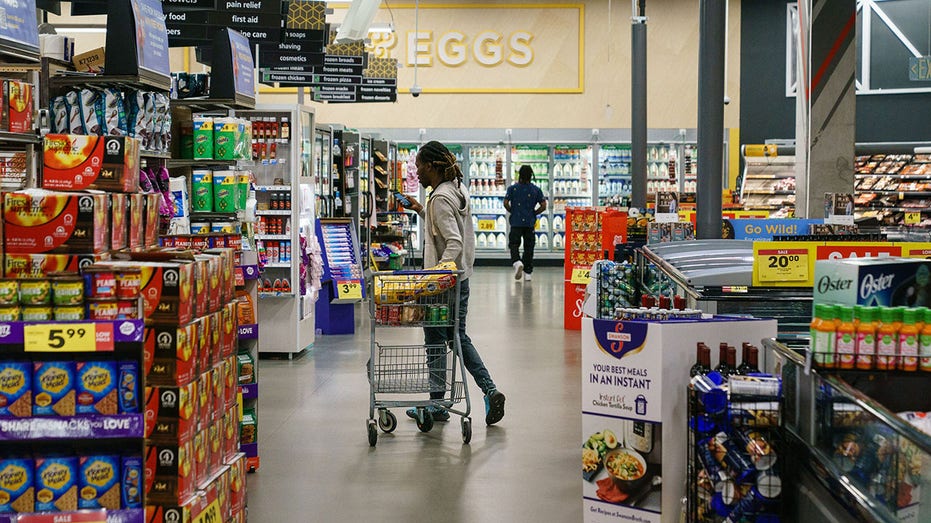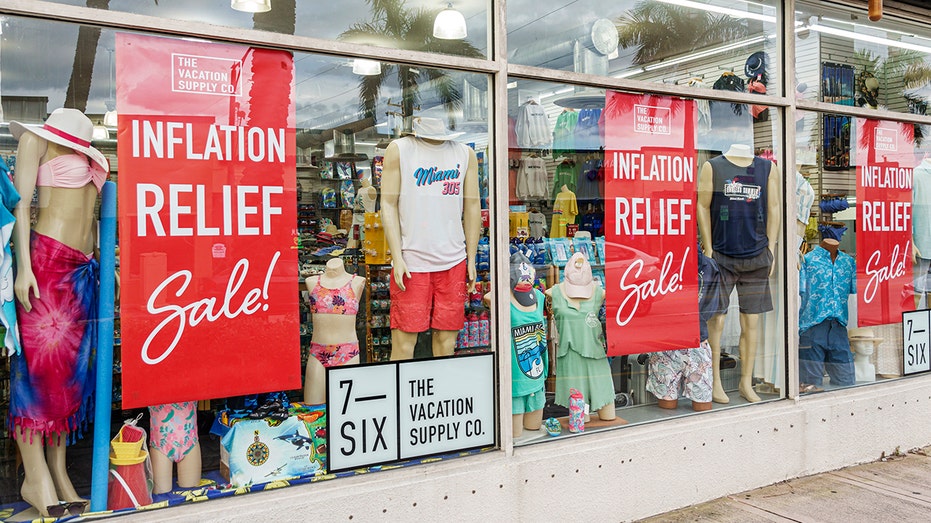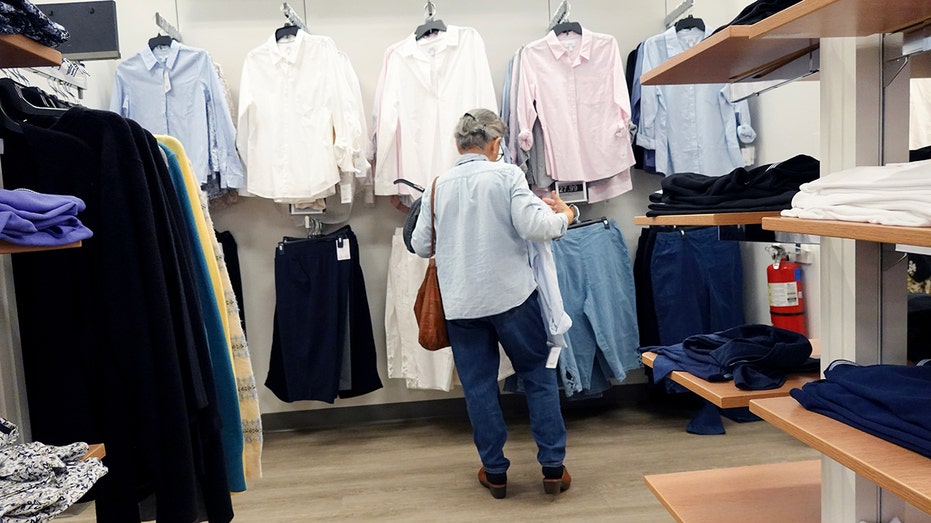Nearly two-thirds of middle-class Americans say they are struggling financially: 'Gasping for air'
Americans are feeling pessimistic about their finances amid ongoing inflation
Sticky inflation keeping rate cuts off table: Otter
Jack Otter and "Barron’s Roundtable" senior writer Nicholas Jasinski discuss how rate cuts are looking unlikely for 2024.
A majority of middle-class Americans are experiencing financial hardship that they expect will continue for the rest of their lives, according to a new poll.
Findings published by the National True Cost of Living Coalition show that 65% of Americans whose incomes are 200% above the national poverty line – which is about $62,300 for a family of four, often considered middle class – said they are struggling financially.
Respondents include those with high school diplomas and graduate degrees as well as blue- and white-collar workers who live in both rural and urban America.
While many of these people said they are able to afford the most basic expenses, they expressed concern about their inability to save for the future. Tellingly, about 40% of Americans said they are unable to plan beyond their next paycheck, while another 46% said they do not have $500 saved for emergencies.
WHITE-COLLAR WORKERS ARE STRUGGLING TO FIND JOBS AS LABOR MARKET SLOWS

Shoppers are seen in a Kroger supermarket on Oct. 14, 2022, in Atlanta. (Elijah Nouvelage / AFP / Getty Images)
"The economy is booming, and yet many Americans are still gasping for air financially," said Jennifer Jones Austin, CEO of the Federation of Protestant Welfare Agencies and co-chair of the National True Cost of Living Coalition. "They simply don’t have the breathing room to plan beyond their present needs."
By many measures, the economy is healthy. The labor market is continuing to chug along at a solid but moderating pace with employers adding 175,000 new workers in April. Job openings remain high, and the unemployment rate has held below 4% for more than two years straight.
But Americans are also grappling with the highest interest rates in two decades and chronically high inflation that has made the cost of everyday necessities like groceries, rent and gasoline far more expensive.
While inflation has fallen considerably from a peak of 9.1% notched during June 2022, it remains above the Federal Reserve's 2% goal. And when compared with January 2021, shortly before the inflation crisis began, prices are up 17.6%.
INFLATION INCREASES 3.4% IN APRIL AS PRICES REMAIN ELEVATED

Vacation Supply Co. windows display signs for an inflation relief sale in Miami Beach, Florida. (Jeffrey Greenberg / Universal Images Group / File / Getty Images)
Many families have yet to see material relief. Grocery prices are up more than 21% from the start of 2021, and shelter costs are up 18.37%, according to FOX Business calculations. Energy prices, meanwhile, are up 38.4.%.
Price hikes are particularly devastating for lower-income Americans because they tend to spend more of their already stretched paycheck on necessities and, therefore, have less flexibility to save money.
The typical U.S. household needed to pay $227 more a month in March to purchase the same goods and services it did one year ago because of still-high inflation. Americans are paying on average $784 more each month compared with the same time two years ago and $1,069 more compared with three years ago.
AUTO INSURANCE RATES CONTINUE TO SKYROCKET WITH NO IMMEDIATE SIGNS OF RELIEF
As they spend more on everyday goods, Americans are burning through their savings and are increasingly turning to credit cards to cover those basic expenses.

A person shops in a Kohl's department store on March 12, 2024, in Miami. (Joe Raedle / Getty Images)
The latest findings come amid growing pessimism among U.S. households about their financial situation under President Biden.
A recent poll published by Gallup found that Americans are less optimistic about the state of the U.S. economy than they have been in recent months, and just 38% of voters have confidence in Biden to recommend or do the right thing for the economy. By comparison, in 2020, about 47% of respondents said they trusted former President Trump to do the right thing for the economy.
GET FOX BUSINESS ON THE GO BY CLICKING HERE
"Biden's subpar rating could have significant electoral implications as not only does he have the lowest economic rating of any president seeking reelection since Gallup began tracking this in 2001, but independents trust his opponent more than him," Gallup said.





















